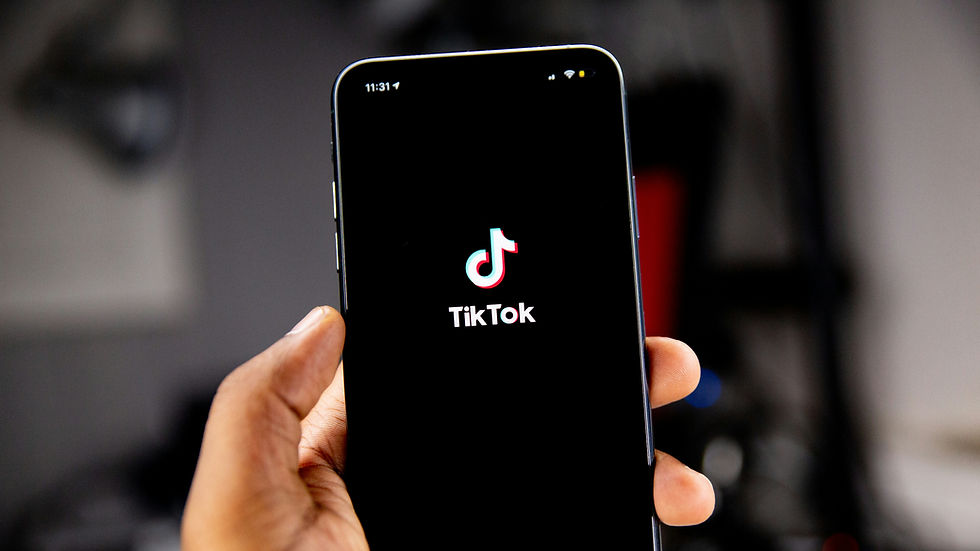Chinese Automakers Drive South American Electric Vehicle Market Growth
- tech360.tv

- Nov 18, 2025
- 3 min read
Chinese electric vehicle (EV) manufacturers are rapidly expanding their presence across South America, filling a market gap as Tesla maintains no official presence. This growth is evident in countries such as Peru, Chile, Brazil, and Uruguay, where affordable Chinese models are gaining significant market share.

Peruvian green energy entrepreneur Luis Zwiebach flew 4,000 miles to California in 2019 to test drive a Tesla Model 3 sedan, later purchasing an already imported Model 3 from a private seller in Peru. He noted initial charging difficulties at a friend's beach house, which they resolved by creating a makeshift ground. Today, Chinese brands like BYD, Geely, and GWM offer EVs in Peru at approximately 60% of a Tesla's price, alongside models from Toyota, Kia, and Hyundai.
EVs remain a small but growing segment of the new car market in Peru. A recent nine-month period saw 135,394 new cars sold, with hybrid and electric vehicle sales reaching a record 7,256 units, a 44% increase year on year. This surge is partly attributed to the opening of the Chinese-built Port of Chancay, north of Lima.
The Chancay megaport has halved trans-Pacific shipping times, providing Chinese manufacturers with a vital trade route amid increasing barriers in the United States and Europe. Cosco Shipping, the port operator, reported that each ship brings 800 to 1,200 vehicles, expecting 19,000 vehicle arrivals from China by the end of the year.
BYD plans to open a fourth dealership in Lima, Peru, by the end of this year. Chery and Geely already operate more than a dozen dealerships across Peru. Zwiebach noted that rising demand has encouraged him to expand his renewables business, offering EV charger installations in Lima and Arequipa.
Global automotive analyst Felipe Munoz at JATO Dynamics indicated that Chinese carmakers face intense price competition and a surplus of new cars domestically. This excess is increasingly shipped overseas to regions including Latin America. Martin Bresciani, President of Chile's automotive business chamber, CAVEM, highlighted that Chinese brands now match global quality standards.
EV penetration in Latin America, including Mexico and Central America, doubled in 2024 to about 4%, boosted by government incentives and affordable Chinese models, according to the International Energy Agency. Recent figures show EV market share reached 10.6% of new cars registered in Chile in September, 9.4% in Brazil in August, and 28% in Uruguay in the third quarter of the year. These represent record highs for each nation.

In Uruguay, BYD is now the third-biggest seller across all vehicle types, trailing only General Motors' Chevrolet and Hyundai. China's market share in Uruguay has more than doubled since 2023 to 22%. Luxury car dealer Gonzalo Elgorriaga in Punta del Este observed that BYD models now dominate his sales.
Mr. Elgorriaga stated that Chinese brands have achieved legitimacy and scale, collaborating with local banks to offer credit lines and competitive prices. Prices for Chinese battery electric vehicles (BEV) from BYD in Uruguay start at $19,000. Another Uruguayan car dealer, Federico Guarino, noted, “I can buy three Chinese pick-ups, for the price of two traditional brands. That’s a big difference.”
Vehicles arriving at Peru’s Chancay megaport are distributed beyond Peru, with Cosco Shipping completing its first vehicle trans-shipment to Chile in September. Another trans-shipment transported hybrids and EVs to Chile. Cosco aims to establish Peru as a regional distribution hub for hybrid, electric, and conventional Chinese cars, with shipments also directed to Ecuador and Colombia.
In Brazil, some Chinese firms are investing in local factories due to tariff barriers. BYD began assembling EVs in October at Ford's former plant in Bahia, and Great Wall Motors (GWM) launched partial production in August at a repurposed Mercedes-Benz facility. Ricardo Bastos, Director of Institutional Affairs at GWM Brazil, anticipates exporting vehicles from its Brazil factory to the region by 2027.
Brazilian industry and labour groups have expressed concerns that China is leveraging temporarily low EV tariffs to boost exports rather than significantly invest in local manufacturing. Tariffs on foreign EVs, which began returning last year, are scheduled to reach 35% by July 2026. EV adoption still faces challenges in South America, including long distances and uneven charging networks.
Chinese electric vehicle manufacturers are expanding rapidly across South America, capitalising on Tesla’s absence.
The Port of Chancay in Peru, a Chinese-built megaport, has significantly boosted Chinese vehicle imports and regional distribution.
Affordable Chinese EV models are driving market share gains in countries like Peru, Chile, Brazil, and Uruguay.
Source: REUTERS


